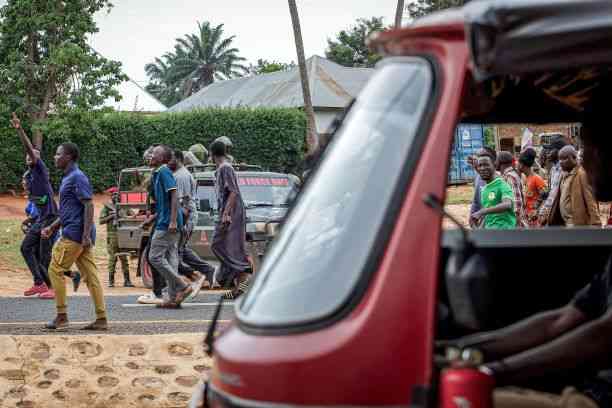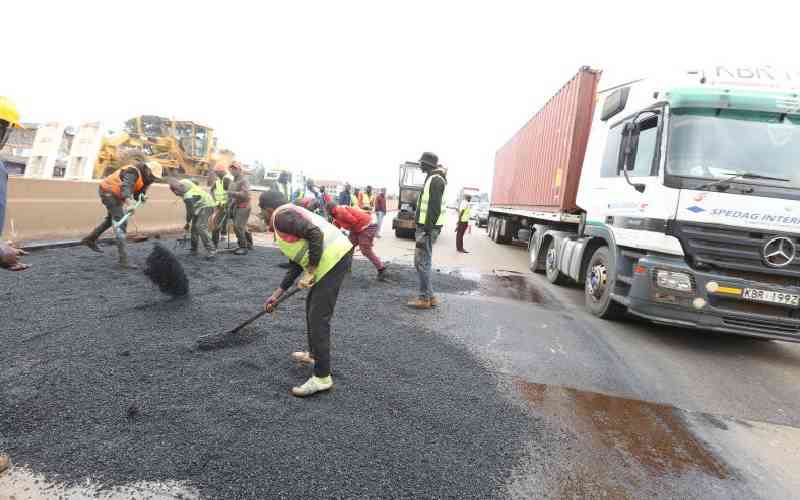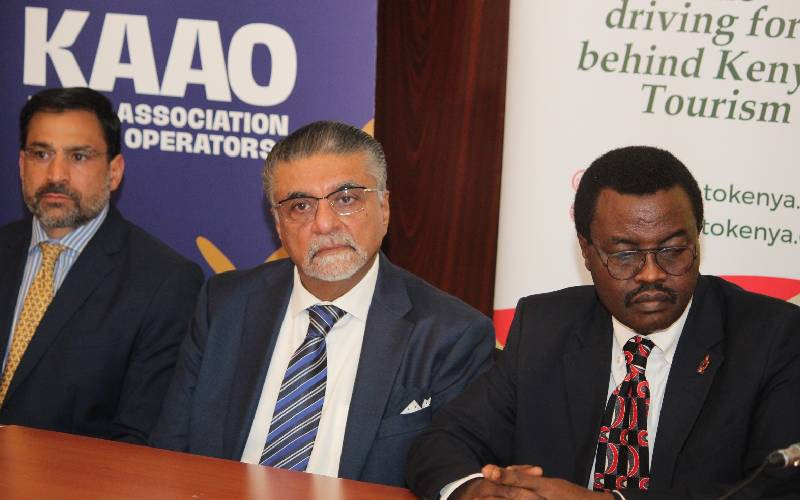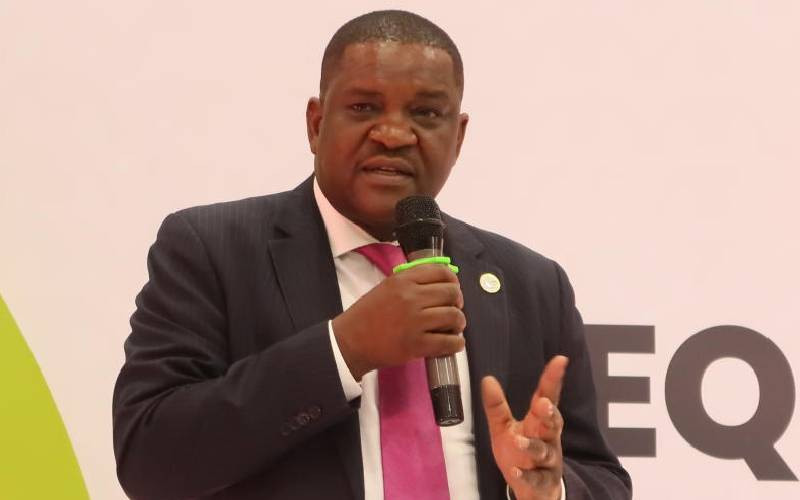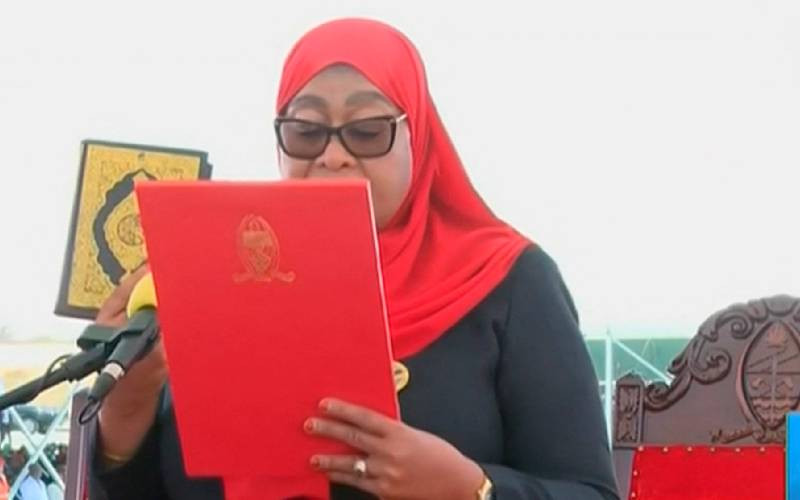
This video grab from the Tanzania Broadcasting Corporation (TBC) shows President Samia Suluhu Hassan taking the oath of office during her inauguration ceremony in Dar es Salaam, on November 3, 2025. [AFP]
When Tanzanians went to the polls on October 29, 2025, hope flickered faintly. For many, this was the election that could either affirm President Samia Suluhu’s professed reformist image or expose the limits of her political will. For those who had long called for pre-election reforms, the widely used slogan #NoReformsNoElections—championed by CHADEMA and civic actors—symbolised their demands. Opposition party chairman Tundu Lissu defended the slogan as a call for essential electoral changes, while social media reports showed it spreading across Instagram, X , Facebook, and TikTok, fuelled by youth and opposition networks.
The die was cast: The push for meaningful electoral change collided with a counterforce determined to maintain the status quo. Reports of internet shutdowns and police crackdowns followed swiftly. Within hours of the count, hope gave way to anger. Streets across Dar es Salaam, Arusha, Dodoma, and Mbeya filled with protesters claiming that, under the circumstances, the vote was neither free nor fair. The unrest was not random; it was an eruption of frustration against a system many felt had ignored their voices for too long.
In equal measure, Cameroonians watched in muted frustration as Paul Biya—already the world’s oldest head of state—claimed an eighth term. Familiar accusations resurfaced: Vote rigging, ballot stuffing, and intimidation. Yet while Cameroonians focused on procedural irregularities, Tanzanians decried the absence of genuine reforms that could have lent credibility to their polls. Across both nations, citizens felt abandoned—by their leaders, their institutions, and, most painfully, by the African Union.
While many Tanzanians openly rejected the election as neither free nor fair—citing a lack of key pre-election reforms and a visibly uneven campaign environment—the AU Commission’s Chairperson Mahmoud Ali Youssouf congratulated Suluhu on her “election victory” and urged Tanzanians to maintain peace. The message was strikingly tone-deaf. For citizens who had witnessed opposition rallies dispersed, journalists detained, and counting stations sealed off, the AU’s gesture sounded less like a call for calm and more like an endorsement of injustice.
This is not the first time the AU has chosen ceremony over principle. When Cameroon’s electoral commission declared Biya the winner—yet again—the AU extended its congratulations almost reflexively. That routine commendation to an eighth-term presidency reeked of continental fatigue. What might once have been seen as diplomacy now reads as moral evasion. By repeatedly congratulating incumbents in contested elections, the AU has created a pattern that undermines its credibility. Its praise no longer stabilises tense nations—it aggravates them. Citizens see these statements not as signs of solidarity but as proof that the AU is comfortably detached from their suffering.
The AU was not powerless in either situation. Its founding documents, including the Constitutive Act of the African Union and the African Charter on Democracy, Elections and Governance, clearly call for transparency, accountability, and popular consent. Article 3(g) of the Constitutive Act commits the AU to “promote democratic principles and institutions, popular participation and good governance.” Article 4(m) adds that governments must respect “democratic principles, human rights, the rule of law, and good governance.” Meanwhile, Article 17(1) of the Charter obliges member states to “ensure that the process of organising elections is transparent, free and fair.” The AU could have invoked these provisions, called for an independent review of the Tanzanian vote, and reminded leaders that sovereignty flows from the people, not the palace. Instead, the AU took refuge in ritual—watching, congratulating, and retreating.
The Tanzanian election was not without external scrutiny. The AU Election Observation Mission, led by former Botswana President Mokgweetsi Masisi, deployed 72 observers across 31 African countries. The East African Community launched its own mission, comprising 67 observers drawn from partner states, while the Southern African Development Community Observation Mission arrived in Tanzania and deployed observers in 27 of the country’s 31 regions. Each mission has issued preliminary statements, but publicly available commentary has yet to provide a clear assessment of how they confronted grievances voiced by citizens—from media censorship and the disqualification of opposition candidates to the detention of activists and protest leaders.
Yet questions linger about the transparency of the process itself. Reports indicate that Tanzania restricted observer accreditation ahead of the 29 October election. While the AU and other regional blocs announced the deployment of their mission teams, credible public evidence suggests that some observer groups were excluded from the official accreditation list, and that international media and civil society actors faced barriers to entry. This narrowing of oversight not only fuelled domestic suspicions of foul play but also undercut confidence in the institutions mandated to guarantee electoral integrity. Combined with widespread reports of internet blackouts, social-media restrictions, and an environment of fear, the credibility of the entire exercise hangs under a cloud of doubt.
Meanwhile, the EU did not send a full observer mission but maintained a limited “DiploWatch” presence. Still, several EU actors, notably the European Parliament, publicly criticised the Tanzanian elections, describing them as “neither free nor fair” and conducted “under an atmosphere of repression, intimidation, and fear.” They pointed to arrests of opposition figures, restrictions on observers, and media censorship—echoing what Tanzanian journalists had been risking their lives to report. That criticism stood in stark contrast to the AU’s self-congratulatory diplomacy.


